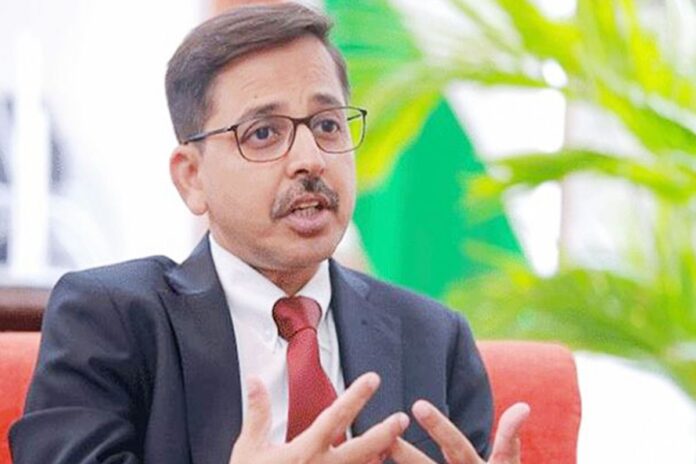Bangladesh summons Indian High Commissioner Pranay Verma to address rising tensions along the Indo-Bangladesh border, citing concerns over unauthorized activities by India’s Border Security Force (BSF). The meeting, held on January 12, 2025, reflects the interim Bangladeshi government’s growing unease about recent developments, including the construction of barbed-wire fences in five border locations.
Foreign Secretary Md. Jashim Uddin conveyed Bangladesh’s position during discussions at the Ministry of Foreign Affairs. The ministry issued a statement describing the fence construction as “unauthorized,” emphasizing its potential to strain the historically cooperative relationship between the two neighbours. “The construction of barbed wire fences without proper authorization undermines the spirit of cooperation and friendly relations between the two countries,” Uddin asserted.
Historical Agreements And Tensions
India and Bangladesh share a complex border history, punctuated by agreements such as the 2015 Land Boundary Agreement (LBA). While this treaty resolved long-standing territorial disputes, it did not entirely alleviate border-related concerns. The killing of Bangladeshi nationals by BSF personnel has continued to be a contentious issue for Dhaka. The Foreign Secretary highlighted a recent incident involving the death of a Bangladeshi citizen in Sunamganj, urging India to conduct thorough investigations and ensure accountability for such acts.
Bangladeshi Adviser on Home Affairs, Jehangir Alam Chowdhury, added to the criticism, labeling past border agreements as “unequal” and attributing ongoing challenges to these deals. Chowdhury also raised alarm over the increased fencing activity, stating that Bangladeshi authorities were not consulted beforehand.
Political Implications Along The Border
Since the fall of the Sheikh Hasina government in August 2024, border dynamics have intensified. Instances of members of the Awami League attempting to cross into Indian territory have raised eyebrows, fueling suspicions of politically motivated movements. The discovery of Awami League leader Ishfaq Ali Khan Panna’s body inside Meghalaya last year further highlighted the border’s volatile nature.
The upcoming Border Guard Bangladesh (BGB) and BSF Director-General-level talks are expected to address these multifaceted challenges. “We hope the dialogue will provide a platform to resolve ongoing issues and restore mutual trust,” the Bangladeshi Foreign Secretary remarked.
India’s Stance On The Dispute
Indian High Commissioner Pranay Verma, following his meeting with Bangladeshi officials, acknowledged the importance of ongoing cooperation. “We have an understanding with regard to fencing the border for security. BSF and BGB have been in communication in this regard,” Verma stated, aiming to ease tensions.
The situation underscores the fragile balance of cooperation and conflict that defines the India-Bangladesh border relationship. As both nations navigate this sensitive period, international attention remains focused on how diplomatic efforts shape the resolution of the border disputes.

